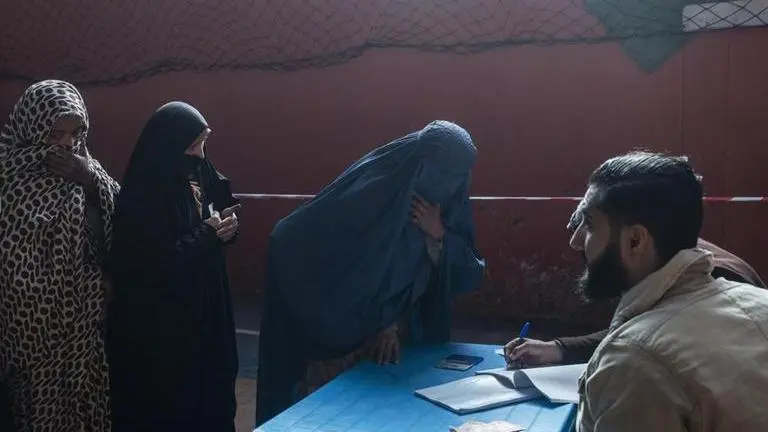Updated 24 November 2021 at 22:50 IST
100 Days of Taliban: A chronology of events after terror group's takeover of Afghanistan
The Taliban took control of Afghanistan on August 15, ending over two months of military blitz. Since then, a situation of conflict and crisis has emerged.
- World News
- 4 min read

The Taliban took control of Afghanistan on August 15, ending over two months of military blitz. Since then, a situation of conflict and crisis has shadowed the Central Asian country, pushing millions of residents on the brink of devastation. Not only has the power overhaul left more than 2.6 people seeking asylum, as per a report by UNHCR, but has also pushed the people who stayed back into poverty and hunger. Here's is how the situation unfolded in the country of over 40 million people.
Taliban takeover
As the Sunni Pashtuns took over the Presidential Palace, the then leader of the country Ashraf Ghani fled with 'big bags' of money. Along with the cash, the fugitive President also carried a gun to 'kill himself' in case the Taliban stormed in before he could leave, according to a report by Britain's Daily Mail. In the aftermath, he issued a statement wherein he said that that he had a “hard choice” of either leaving the country or allowing the Talibani insurgents to destroy Kabul, a city with a population of nearly six million people.
Meanwhile, the Taliban held their maiden press briefing wherein a spokesperson for the group said, "Women will be working with us shoulder to shoulder. There will be no discrimination against them in the internal community. We are going to allow women to study and work and all rights within the framework of Islam." However, they soon banned co-ed education and limited female education asserting that it was "against the Sharia Law".
Later in August, as the resistance movement in Panjshir exploded, the Taliban cut down the province’s internet connection. In a tweet, the movement stated that the Roshan and Etisalat networks, the telecommunication networks used by the leaders, were also down. Experts have said that internet blackout directly implies that the Taliban aimed to stop Ahmad Massoud, Amrullah Saleh and other leaders from tweeting. Despite the opposition, the province fell to the Taliban on September 6.
Advertisement
As the backlash against the US grew, President Joe Biden held a press conference justifying the military pullout. While the American leader was widely blamed for jeopardising the lives of hundreds of thousands of people, he said that it was not his fault but that of Afghanistan’s leaders and security forces. “The American forces would not fight and die in a war that Afghan forces are not ready to fight for themselves,” he said on August 17.
Establishment of the Islamic Emirate of Afghanistan
On September 7, the Taliban announced the government that would officially govern the Islamic Emirate of Afghanistan. In a press conference, they stated that the de facto administration would be led by Mullah Mohammad Hasan Akhund, the head of the Taliban's powerful decision-making body 'Rehbari Shura'. Taliban co-founder Mullah Abdul Ghani Baradar was selected to be his deputy. Spokesperson Zabiullah Mujahid was announced to be the country's Acting Deputy Culture and Information Minister.
Advertisement
Later on September 11, the insurgent group rechristened the International airport in the capital city of the war-torn country. The airport, which earlier went by the name 'Hamid Karzai International Airport, on the order of the insurgent group, will henceforth go by the name 'Kabul Airport', as per the Afghan media. Meanwhile, Since the Taliban’s takeover, ISIS-Khorasan had launched several strikes in-country including two major explosions last month.
In the latest development, some of the leading powers in the world have inched forward to recognise the Taliban government. Last month, Chinese Foreign Minister Wang Yi pledged to support and assistance to the Taliban in a meeting in Doha. Meanwhile, Russian Federation Council Speaker Valentina Matviyenko said that the Putin administration might recognise the government of the Taliban (outlawed in Russia) in Afghanistan on the condition of its inclusivity and observance of human rights. US and UK have also held multiple meets with Taliban lawmakers.
Image: AP
Published By : Riya Baibhawi
Published On: 24 November 2021 at 22:50 IST
